Is (more or less) the title of Eleonore Büning’s new book, based on her long-running music advice column in the FAZ.
We wonder who she had in mind.
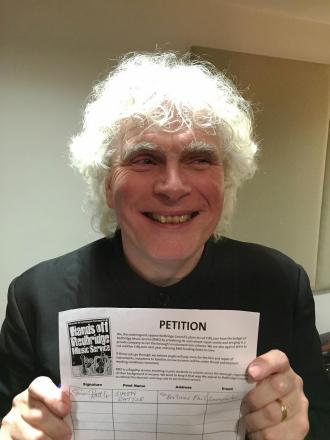
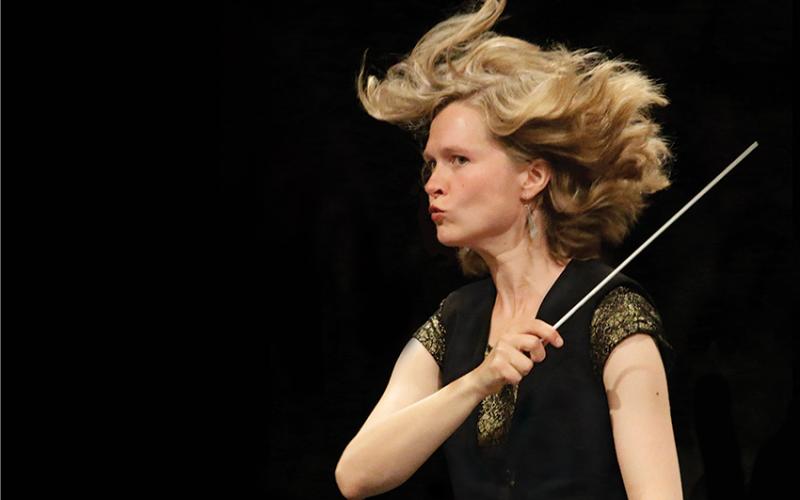
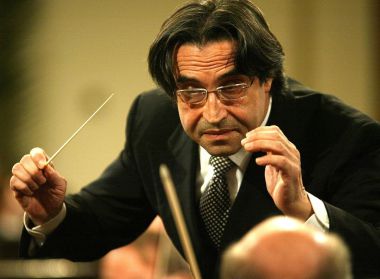
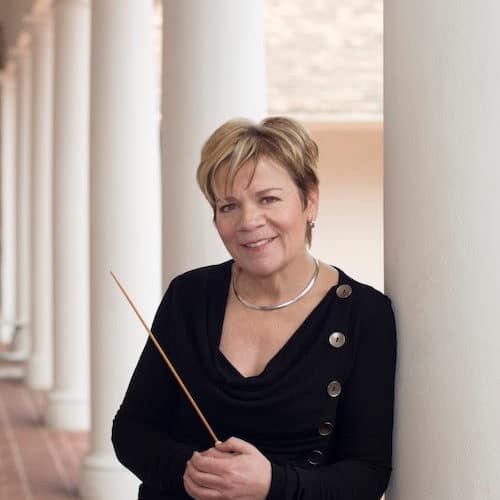
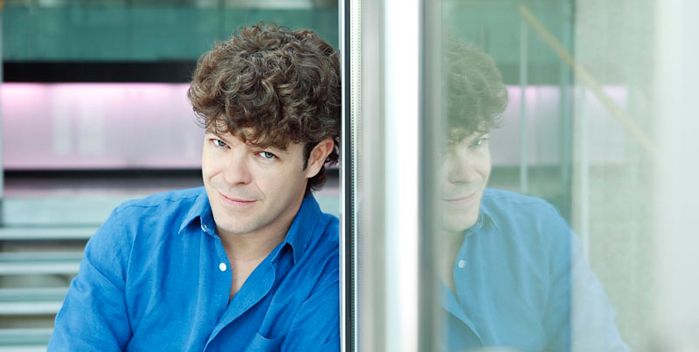
Is (more or less) the title of Eleonore Büning’s new book, based on her long-running music advice column in the FAZ.
We wonder who she had in mind.





The idea behind 4’33”
The orchestral version
The death metal take
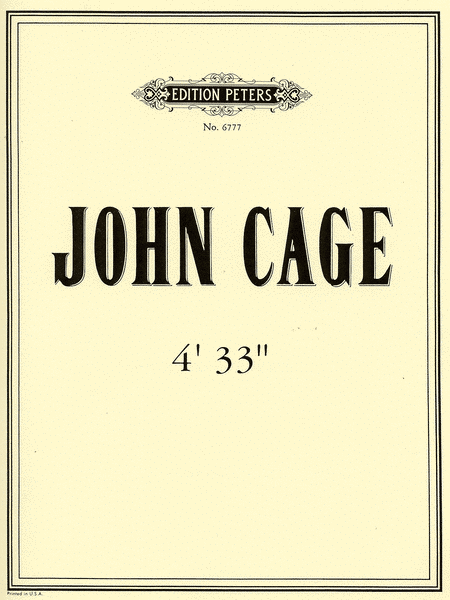
Fabio Luisi, music director at Zurich Opera and Dallas Symphony and principal conductor of the Danish National Symphony, responds to my criticisms of the multi-job maestro with this account of his activities in the Covid year:
At the end of June I had to convince the administration of Zurich Opera not to end the season silent since the government had given permission to hold indoor events with 200-400 people in the audience, I managed to organise two orchestra concerts, the first with string orchestra – Schoenberg’s “Verklärte Nacht” and Strauss’ “Metamorphosen”, which we also recorded – and the second with two singers, Piotr Beczala and Camilla Nylund, an operetta gala.
In September the Opera Zurich reopened with the orchestra playing in a remote venue and being broadcast live into the Opera House: Boris Godunov was the opening (I didn’t conduct, it was the brilliant Kirill Karabits). Instead of a Vespri Siciliani revival that we couldn’t do in the spring, I conducted some Verdi-Concerts. Slippedisc reported Boris with a nasty review – the only negative one – which didn’t understand the importance of this opening and the efforts everybody put in place in order to give music and opera to the audience and to the city.
In August I was in Copenhagen, we played Bruckner’s 4th Symphony with social distancing. I returned there weeks later for two performances of Mahler’s 2nd Symphony (with orchestra and chorus distanced of course), which was the opening of the season.
In the US, Dallas Symphony Orchestra is one of the few orchestras, and the only one of the bigger ones, which started its season regularly albeit with changed programs. Because of the very strict, self-imposed protocols and rules (everybody, from the usher to the MD and CEO, has to be Covid-tested every day) we gave access to our first subscription concert to only 75 people in the audience, also reducing the size of the orchestra because of the social distancing. The orchestra accepted a salary reduction, so did the administration: CEO and myself also cut sensibly our salary (twice as much as the administration cuts). I was the only music director in the US to open the season with his or her own orchestra. Our CEO, Kim Noltemy, did a great job keeping the orchestra’s musicians busy during the summer, playing small concerts in a number of locations and for diverse audiences. I am very proud of her efforts and of my musicians’ sense of responsibility.
For all these institutions it was important not to stop, to do our best to keep offering music, first in streaming (during the European lockdowns) and as soon as possible live, so personally I can’t fully understand the decision of other orchestras or opera houses to shut down completely their activity without even trying to do anything.
I have to say, in order not to be dangerous to my colleagues, that I have been tested, mostly voluntarily, 21 times in the last 70 days. Thanks to the strict protocols in Switzerland, Denmark and in Dallas we had no positive cases in these orchestras to the best of my knowledge.
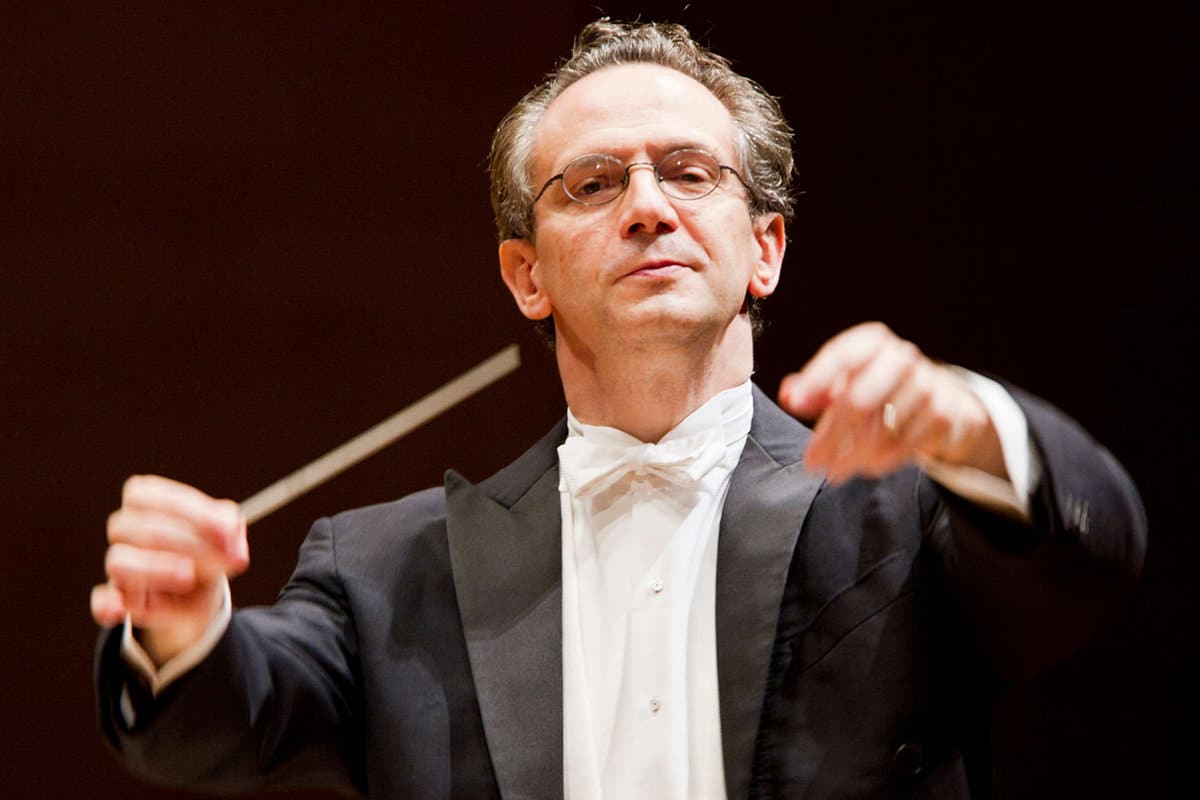
From our pal Tim Page, in Belgrade:
A dear friend was bemoaning the fact that he’d likely never see a professionally staged performance of “The Mikado” again. Satire is terribly out of favor just now — to the point where I wonder whether younger generations will read Petronius, Swift, Fielding, Dawn Powell, Waugh and Pynchon — but I think there is another reason why the Gilbert and Sullivan canon is rarely presented today
Compare the earliest recordings of the Savoyard operas with the later ones, which continued up until at least the 1990s. Speaking generally, the later recordings are more musically assured, have better sound, and explore the more serious aspects of the works with deeper intensity.
What they lack is madness. It is as though somebody had remade Marx Brothers or Three Stooges films with leading contemporary actors replacing the originals. I’ve come to a point where I want to hear no other version of “The Gondoliers” (to name the fastest, fizziest Gilbert and Sullivan opera) than the 1927 recording, with Henry Lytton, Leo Sheffield, George Baker, Bertha Lewis and Winifred Lawson falling all over each other, finishing each other’s sentences, sharing and behaving by the rules of the same loopy planet. Several of these artists worked with Gilbert (who died in 1911) and a few went back all the way to Sullivan (1900).
I feel the same way about the best of the Carlo Sabajno and Lorenzo Molajoli conducted recordings of late 19th century and early 20th century Italian operas. Knowing the world that Verdi, Puccini, Leoncavallo and Mascagni inhabited and sometimes working with their singers gave these performances a startling authority: it sometimes feels as though the characters *themselves* are singing, rather than hired sopranos, tenors and basses. This music, however, has become a part of the standard classical repertory in a way that perhaps nothing written in English but “Messiah” has, and we have grown accustomed to many different approaches and casts of international superstars.
Gilbert and Sullivan, however, belong to the British Empire, which had many attributes and terrible faults. The operas are the representation of an inspired, provincial and eccentric island (I say this with deep affection) that was then running much of the world. They belong to a a certain time and place, which is no terrible thing in itself, but it is damned hard to recreate now. You might as well try to book Harpo at Lincoln Center.
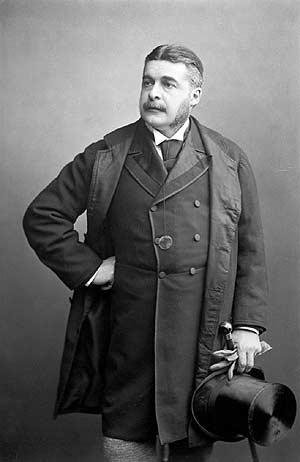
Your thoughts?
Lebrecht Album of the Week:
Britten: Sinfonia da Requiem (DG)
****
Como a missa em C major de Beethoven, que é ofuscada pela poderosa Missa Solemnis, a Sinfonia do
Réquiem de Benjamin Britten é às vezes confundida com o Réquiem de Guerra, embora as duas obras
não tenham nada em comum. A Sinfonia, uma obra somente para orquestra, dura apenas 20 minutos e
está carregada de ambivalência pessoal.
Britten foi encarregado de escrevê-la em 1939, tendo recentemente se estabelecido em Nova York e
sido exposto a seu estilo de vida cosmopolita muito mais colorido do que os dias cinzas de Londres. A
comissão veio do governo japonês, para marcar o 2.600º aniversário de sua dinastia governante. O
Japão havia invadido brutalmente a China. Britten era um pacifista. Ele disse a um repórter de jornal:
"Estou fazendo com que seja o mais anti-guerra possível". Mas ele aceitou o cachê. No ano seguinte, ele
foi chamado ao consulado japonês para ser acusado de insultar a nação (eles não pediram o dinheiro de
volta).
A obra foi estreada no Carnegie Hall em 29 de março de 1941 pela Filarmônica de Nova York e seu
maestro principal John Barbirolli. Sua próxima apresentação, em Boston, foi mais importante. O maestro
Serge Koussevitsky gostou tanto que encomendou com Britten a sua primeira grande ópera, Peter
Grimes. Em meio à entrada do Japão na segunda guerra mundial e sua nova preocupação com a ópera, a
Sinfonia do Réquiem foi posta de lado. Até hoje, ele raramente comanda o palco central como uma obra
formativa de um compositor brilhante em seus 20 anos de idade.
Com dois movimentos externos sombrios e um centro agitado, todos com denominações da missa de
réquiem, a Sinfonia cobre uma gama de humores, da piedade à paixão. Mahler é uma influência
inconfundível, notadamente a nona sinfonia, enquanto as erupções de latão e percussão pertencem a
Igor Stravinsky, e a atmosfera à fragilidade do tempo de guerra e ao mal-estar moral do compositor.
Britten estava vivendo no conforto dos EUA enquanto sua terra natal estava sendo atacada pelos
alemães.
Estes conflitos são fortemente projetados em uma nova gravação hipertensa da Orquestra Sinfônica da
Cidade de Birmingham e de seu diretor musical lituano Mirga Gražinytė-Tyla. Ao contrário de muitas
apresentações respeitosas em inglês que ouvi, esta reflete a vida no limite, sua continuidade incerta, sua
fé cintilante até a extinção. Você está inseguro, de um bar para o outro, em que direção o mundo irá. É a
interpretação menos inglesa que eu já encontrei o que a torna ainda melhor por isso. Mirga estica o
rubato até o ponto da transparência e admite dicas de atonalidade. Será que ela sente os sentimentos
mistos do compositor? É uma narrativa completamente envolvente, disponível em download imediato
no DG.
NL
Dear Mademoiselle (Alpha)
**
Uma despretensiosa professora parisiense de piano e solfejo recebeu um inesperado impulso na
carreira quando o vitorioso General Pershing abriu uma escola de música para americanos em
Fontainebleau, perto de Paris, em 1921. Nadia Boulanger candidatou-se a uma vaga e foi nomeada
professora de harmonia. Em pouco tempo ela se tornou a professora de música para americanos em
Paris, dos quais havia muitos na década de 1920, quando a vida era barata e o romance abundante. O
tímido e desconfiado Aaron Copland se inscreveu para o primeiro semestre dela na escola. George
Gershwin inscreveu-se para aulas particulares. Em 1924, Boulanger foi enviada em uma excursão aos
Estados Unidos para angariar mais negócios, trazendo a primeira sinfonia de Copland onde quer que ela
fosse.
Ainda mais influente foi uma amizade que ela formou com Igor Stravinsky, um acordo recíproco no qual
o exilado russo enviava novos alunos particulares que ela ensinava em sua casa, na 36 rue Ballu, e ela
divulgava e conduzia os trabalhos neoclássicos menos impressionantes dele.
Boulanger frequentemente perdia aulas por causa de enxaquecas e dor de dentes, ou simplesmente
com uma triste melancolia por sua irmã Lili que morreu em 1918 depois de aclamação deslumbrante
como compositora. Nadia, que também compunha, era profundamente intimidada pelo talento e
reputação de Lili.
Copland disse: ‘Nadia Boulanger sabia tudo o que havia para saber sobre música’. Outros estudantes
americanos ao longo dos anos incluíram Elliott Carter, Leonard Bernstein, Philip Glass, Murray Perahia e
o hiperativo compositor de Hollywood, Quincy Jones. Assim como alguns argentinos – Astor Piazzolla e
Daniel Barenboim – e o brilhante compositor de cinema francês e chansonnier, Michel Legrand.
Nadia morreu em 1979. O presente álbum conceitual reúne seleções se obras de estudantes famosos
tocadas, às vezes um pouco cautelosamente, pelo violoncelista Astrig Siranossian e pelo pianista
Nathanael Gouin, com três peças da própria Nadia Boulanger interpretadas por Siranossian com Daniel
Barenboim ao piano. Estas últimas são curiosidades, nada mais que isso. Mademoiselle não era muito
uma compositora, muito concentrada na forma correta para permitir o vôo da inspiração.
As peças mais cativantes aqui são o Grand Tango de Piazzolla, a sonata para violoncelo de Elliott Carter e
um medley de Monsieur Legrand que lhe mandará, assobiando pelo caminho, para uma Bossa Nova de
Mister Jones. Tudo muito divertido, mas por que nada de Copland?
NL

From the latest Lebrecht Album of the Week:
An unprepossessing Parisian teacher of piano and solfège received an unexpected career boost when the victorious General Pershing opened a French music school for Americans at Fontainebleau in 1921…
Read on here.
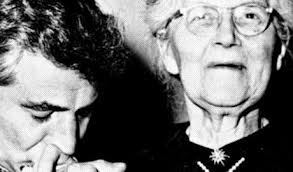
And here.
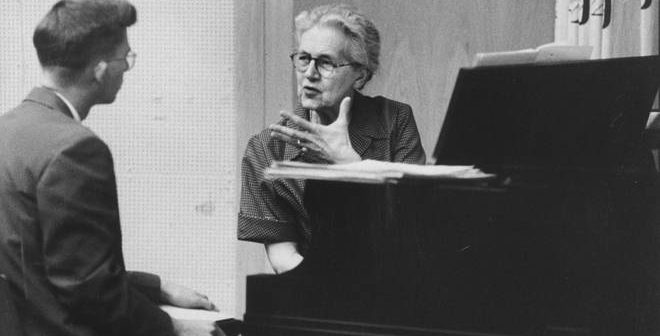
In The Critic here.
In Czech here.
Portuguese here.
Spanish here.
More languages follow.
The results are in from the Oskar Nedbal International Viola Competition in Prague, held online. There were 17 contestants in the final.
The winner is Nicholas Algot Swensen, 21, from Denmark.
The jury was chaired by Professor Tim Frederiksen, Royal Danish Academy of Music, Copenhagen, Denmark.
The other judges were 3 Czechs, a Pole and an American.
Good to see the competition industry is back in business online.
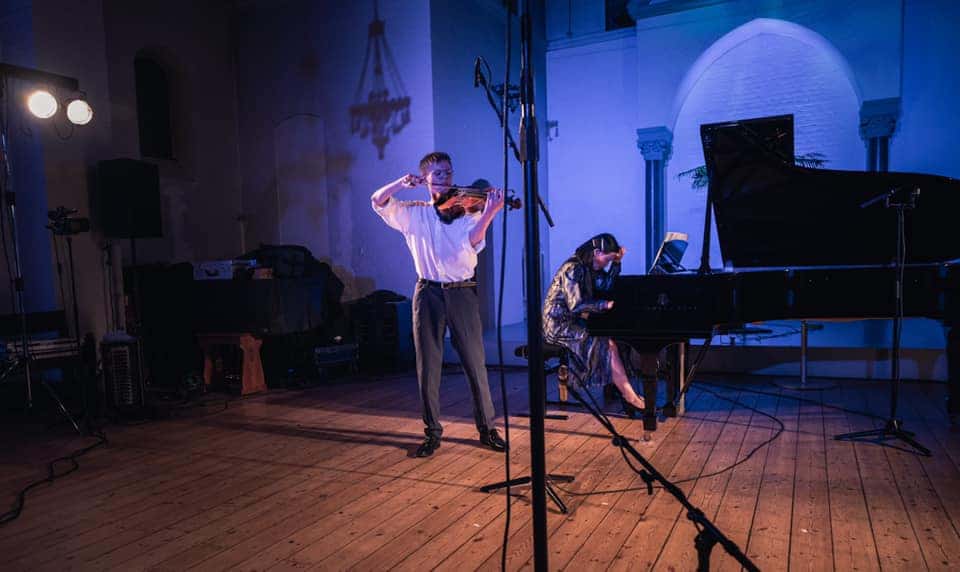
The former IMG agent Jayme Burzette started his own company this weekend. It’s called Muse Artists International and it launches with a list of singers, none of whom is yet a headliner.
That’s refreshing.

The roster includes Joshua Blue, Mathilda Edge, Matthew Pearce, Rafael Porto, Liv Redpath, Natalia Santaliz and Yungpen Wang.
At IMG, Jayme previously looked after Frederica von Stade, Susan Graham, Sasha Cooke and Jakub Józef Orliński.
photo: Stephanie Berger
The string world has been shocked by the sudden death of Yehonatan Berick, a 1993 Naumburg finalist and sought-after teacher at the universities of Michigan and Ottawa. He died of a rapid cancer after three weeks in hospital.
Originally from Holon, he was spotted by Isaac Stern and studied with Dorothy DeLay. Living in Ottawa, for the past decade he played in the AYR Trio with Angela Park (piano) and his partner Rachel Mercer, principal cello of the National Arts Centre Orchestra.
He held the title Professor of Violin at the University of Ottawa.
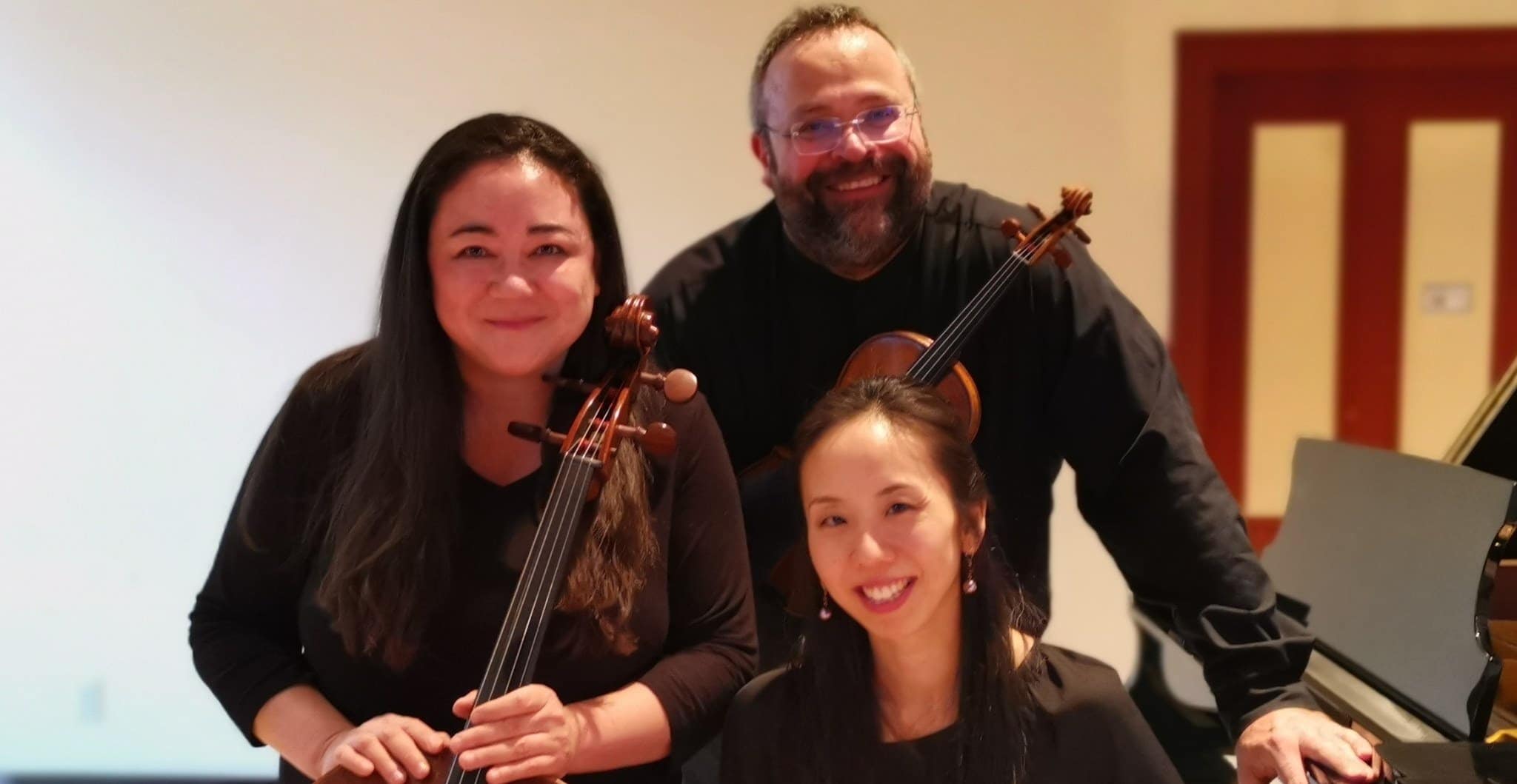
May his memory be blessed.